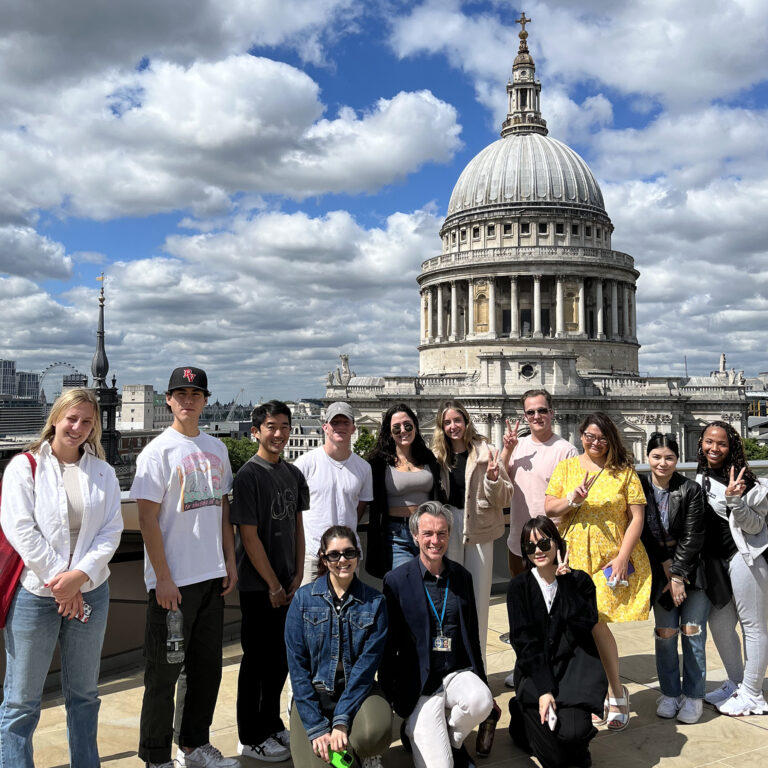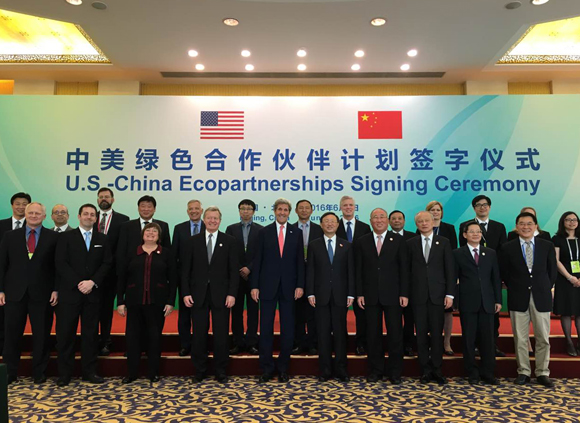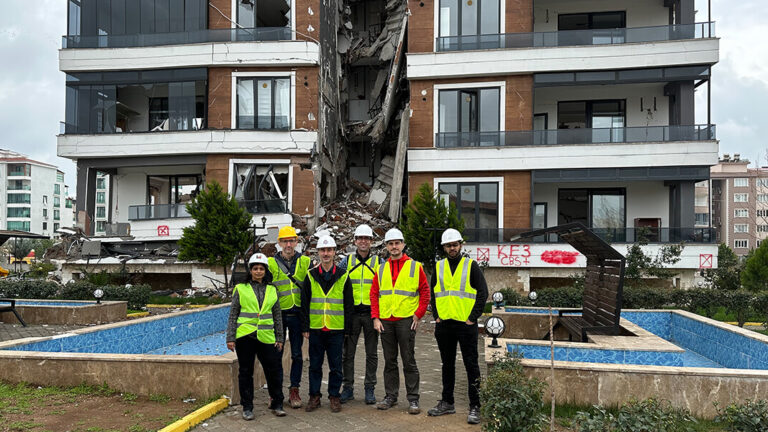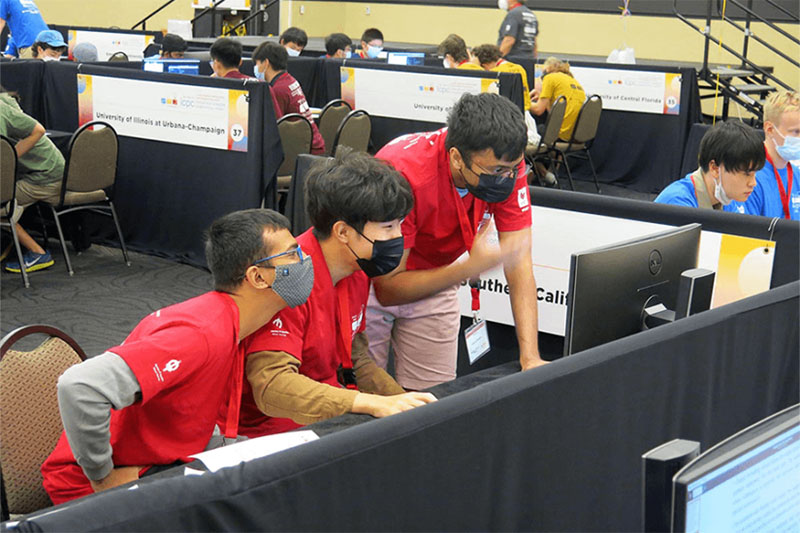
Viterbi students Jeel Tejaskumar Vaishnav, Kangmin Tan and Adhyyan Sekhsaria compete with other American colleges at the International Collegiate Programming Contest.
USC Trojan team headed to finals of “Coding Olympics”
A team of USC Viterbi students has qualified for the American championship of the world’s most prestigious college coding olympics: ICPC.
Call it a hat trick—for the third year in a row, a team of USC students has qualified for the American championship of the world’s most prestigious college coding competition.The team of three computer science students —master’s student Jeel Tejaskumar Vaishnav, and undergraduates Kangmin Tan (’22) and Adhyyan Sekhsaria—placed among the top 20 schools in the International Collegiate Programming Contest’s (ICPC) North American Championship, and in the top three teams in the Western region, allowing them to advance to the final level of the competition.
The competition features teams from the best colleges in America and world-leading programs in computer science, bringing in more than 10,000 participants. It comprises a tournament-style series of stages where teams compete regionally, then by continent, and finally on a world stage, ramping up in difficulty at each stage. It’s the most widely recognized contest of its kind, and features colleges from more than 103 participating countries.
“I would say it’s one of the hardest championships in the world, even though this was just American teams,” said Vaishnav. “You have MIT, Harvard, Stanford, the University of Wisconsin—Madison, so getting a good rank among these colleges is really tough, and we are proud of our performance.”
Measure Twice, Code Once
Each stage of the competition involves 10 to 13 coding problems, which must be solved within the five-hour time limit. Only one computer is allowed per team, which is barred from accessing the internet.
This year, the team solved 6 problems, landing them 12th place overall amongst 50 teams. They credit part of their success to strategy—when limited to one screen, a little creative thinking is required to solve the problems in a timely manner.
“We split the problems into three sections and each teammate is responsible for looking at a specific section,” Vaishnav explained. “When someone finds a solution, they start coding, and we try to repeat this process.”
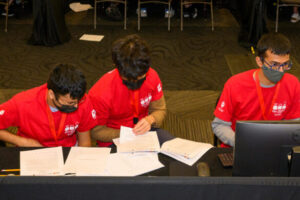
According to Tan, if a teammate is confident about a solution, they go in and start coding. For more challenging problems, the team takes a more thorough, collaborative approach to perfect their solution and avoid wasting time—inaccuracy and incorrect answers are penalized, costing the team precious points.
“Each of us has different specialties,” Tan said. “If an idea for a solution seems non-standard or complicated, we come together and discuss it and figure out implementation details, and then try our best to avoid bugs while coding.”
Looking Forward
The team said they learned a lot from the contests, and not just about what future problems might look like. The experience itself taught them the value of strategy and collaboration to get through the problems efficiently.
“The most remarkable thing for me personally was that I learned how to just relax, even under huge pressure,” Tan said. “As long as you calm down, you can just let past ideas and knowledge flow smoothly through your mind, and you won’t get frozen.”
Going forward, the team’s mood is one of excitement. Vaishnav, who has competed in ICPC before but hadn’t made it to the world stage until now, said it is a dream come true for him. Tan, also a previous competitor, echoed the sentiment, and said he felt honored to have made it this far.
The work isn’t over, however—the team has a lot of practice ahead of them in preparation for the world finals next year.
“We’re going to prepare a lot, by getting problems from previous contests and seeing where people had trouble,” Tan said. “We’re going to be really prepared this time.
